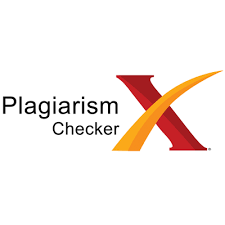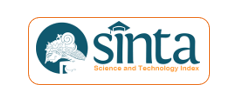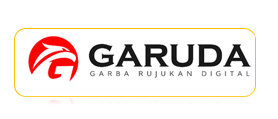PEMBELAJARAN SEJARAH DI ERA REVOLUSI INDUSTRI 4.0
Abstract
Industrial Revolution 4.0 influences historical learning both in substance and in the learning process. This development starts from materials, methods, media, innovative learning models, and especially substances that often cause controversy. The development of technology causes a variety of historical information easily obtained. History lessons should follow these developments, although not all of them have a positive impact on students, history teachers, and historians. They must be able to be selective in responding to various developments in the availability of historical information. Collaboration and elaboration between history and other fields of science are necessary to see various changes and developments in society. History needs to be viewed in a multiperspective manner rather than a mono perspective. Thus, the learning history will provide comprehensive and integrated information that produces the total history. Therefore, this paper provides an alternative way of learning history in the Era of Industrial Revolution 4.0.
Keywords
Full Text:
PDFReferences
Abduhzen, M. (2018). Pendidikan yang Fungsional. Jakarta: Kompas, 13 Agustus 2018.
Arif, M. (2014). Pendidikan Posmodernisme. YogyakartA: AR-RUZZ MEDIA.
Arisandi, H. (2015). Buku Pintar Pemikiran Tokoh-Tokoh Sosiologi Dari Klasik sampai Modern . Yogyakarta: IRCiSoD.
Azimar, A. T. (2016). Sejarah Kontroversial di Indonesia: Perspektif Pendidikan. Jakarta: Yayasan Obor Indonesia.
Baygin, M., Yetis, H., Karakose, M., & Akin, E. (2016). An Effect Analysis of Industry 4.0 to Higer Education. American Journal of Speech-Language Pathology.
Benesovaa, A., & Tupaa, J. (2017). Education and Qualitative of Paople in Industry. 27th International Conference on Flexible Automation and Intelligent Manufacturing, 2195.
Burke, P. (2001). Sejarah dan Teori Sosial. Jakarta: Yayasan Obor Indonesia.
Dekker, I. N. (1975). Sejarah Pergerakan Nasional Indonesia. Malang: Almamater.
Gerlach, & Ely. (1980). Teaching & Media: A Systematic Approach. Boston: Pearson Education.
Harususilo, Y. E. (2018, Mei Rabu). "Ki Hajar Dewantara dan Guncangan Pendidikan Era Industri 4.0". Retrieved from https://edukasi.kompas.com/read/2018/05/02/15561621/ki-hadjar-dewantara-dan-guncangan-pendidikan-era-industri-40
Hegel. (2005). Nalar dalam Sejarah. Jakarta: Teraju.
Kamdi, W. (2016). Inovasi Pendidikan Tinggi. Malang: UM Press.
Kartodirdjo, S. (1970). Lembar Sejarah. Yogyakarta: UGM Press.
Kartodirdjo, S. (2001). Indonesian Hitoriography. Yogyakarta: Kanisius.
Kumar, K. (2012). Sosiologis Historis. In B. s. Turner, Teori Sosial Dari Klasik Sampai Postmodern (p. 662). Yogyakarta: Pustaka Pelajar.
Kuntowijoyo. (2003). Metodologi Sejarah. Yogyakarta: PT. Tiara Wacana.
Lase, D. (2019). Education and Industrial Revolution 4.0. The Theacer Strategis Increate Stu-dent Engagemant in online Learning: STT Banua Niha Keriso Protestan Sunder-mann Nias
Limage, L. (2005). The growth of literacy in historic perspective: clarifying the role of formal schooling and adult learning opportunities. United Nations Educational, Scientific and Cultural Organization., 2-4.
Lloyd, C. (1985). Explanation in Social History. New York: Basil Blackwell.
Lloyd, C. (1987). Teori Sosial dan Praktek Politik. Jakarta: Aksara Persada Indonesia.
Lubis, A. (2014). Posmodernisme, Teori dan Metode. Jakarta: PT. RajaGrafindo Persada.
Mapora, M., & Wassermann, J. (2009). Conceptualising historical literacy – a review of the literature. Yesterday&Today, 62.
McCullagh, C. (2004). Logic of History, Perspektif Posmodernisme. Yogyakarta: Lilin Persada Press.
Neuman, W. L. (2009). Understanding Research. Sydney: Pearson.
Nordholt, H. (2008). Perspektif bar Penulisan Sejarah Indonesia. Jakarta: Yayasan Obor.
Oke, A., & Fernandes, F. A. P. (2020). Innovations in teaching and learning: Exploring the perceptions of the education sector on the 4th industrial revolution (4IR). Journal of Open Innovation: Technology, Market, and Complexity, 6(2), 31.
Purwanto, B., & Adam, A. (2005). Menggugat Historiografi Indonesia. Yogyakarta: Ombak.
Purwanto, B. (2006). Gagalnya Historiografi Indonesiacentris ?! Yogyakarta: Ombak.
Rizky, C. (2018). Media Sosial untuk Advokasi Publik. Jakarta: ICT Watch.
Schrieke, B. (1960). Indonesian Sosioloical Studies. Bandung: W. van Hoeve Ltd.
Schuster, K., Plumanns, L., Groß, K., Vossen, R., Richert, A., & Jeschke, S. (2015). Preparing for Industry 4.0–Testing collaborative virtual learning environments with students and professional trainers. International journal of advanced corporate learning, 8(4), 14.
Sztopkam, P. (2014). Sosiologi Perubahan Sosial. Jakarta: Prenadamedia Group.
Tilly, C. (1981). As Socilogi Metts History. Orlanda Florida: Academy Press.Inc.
Widja, I. G. (2012). Pendidikan Sebagai Ideologi Budaya, Mengamati Permasalaahan Pendidikan Melalui Kajian Budaya. Denpasar: Krishna Abadi.
DOI: http://dx.doi.org/10.17977/um0330v4i1p1-8
Refbacks
- There are currently no refbacks.

This work is licensed under a Creative Commons Attribution-ShareAlike 4.0 International License.
Editorial office:
History Department, Faculty of Social Science,
Universitas Negeri Malang
Jl. Semarang No.5 Kota Malang 65145,
Phone. (0341) 551312,
email: jpsi@um.ac.id
Website: http://journal2.um.ac.id/index.php/sejarah/index
E-ISSN 2622-1837

This work is licensed under a CC BY SA 4.0.








